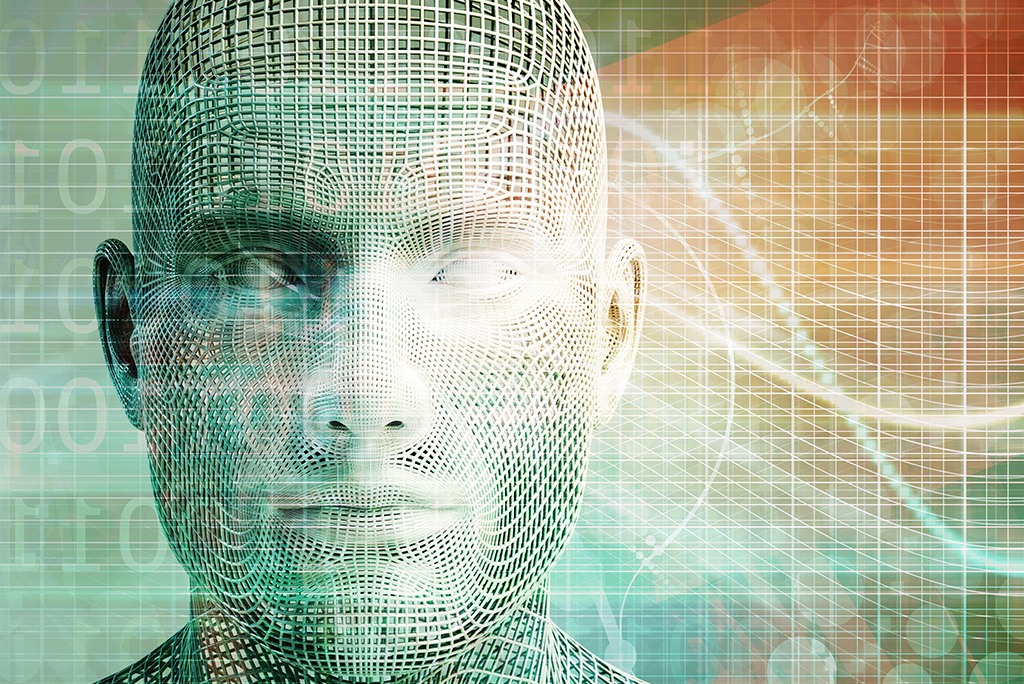
Artificial intelligence (AI) is more present in our lives than ever. With varied uses, AI can predict what we want to see as we scroll through social media, as well as help to solve global challenges like hunger, environmental changes, and pandemics. This technology has countless applications in the real world. A McKinsey survey illustrates that AI adoption followed an upward trajectory in the year 2021 and continues to do so. According to the survey, “56 percent of all respondents report AI adoption in at least one function.”
However, AI technology is not always beneficial—AI can violate privacy, AI-generated output cannot always be explained, and AI can be biased. When the data feeding an AI system is not representative of the diversity and plurality of our societies, it can produce biased or discriminatory outcomes.
An often-cited example is facial recognition technology. Used to access mobile phones and bank accounts, it’s also being increasingly employed by law enforcement authorities. With emerging problems accurately identifying women and darker-skinned people, facial recognition is far from being perfected. This is not surprising when you look at how AI is developed: only 1 in 10 software developers worldwide are women. Furthermore, developers come overwhelmingly from western countries.
Hardcoding Ethics into AI
Humans can be biased, but people possess the ability to recognize how their conclusions may be biased, discriminatory, or unethical. While there is some recent debate over the “sentient” qualities of AI programs, they cannot “think” or “feel”. AI performance depends entirely on its coding. Because AI does not have this meta-cognitive ability, it is up to people to override unethical decisions when they arise. Unethical AI is not a consequence simply of programming deficiencies, but rather of not fully considering how ethical requirements should be incorporated into the learning algorithm during development.
Organizations using AI need to become more proactive and formulate actionable AI ethics policies by thinking about ethics from the start. This approach already is deemed essential to cyber security products, where “security by design” development principles drives the need to assess risks and hardcode security from the start. This mindset should be applied to the development of AI tools so these can be deployed responsibly and without bias. This process will be critical as societies and cultures change over time, and AI products should always reflect current values.
How to Create an AI Ethics Policy
Aligning AI ethics is not just a moral responsibility, it is also a business imperative. It requires action to build an AI ethics-aware culture. Reid Blackman, CEO of Virtue, recommends instilling actionable ethics into AI systems by following these seven guidelines:
- Bring clarity to AI standards
- Increase awareness among everyone in the organization
- Thoroughly incorporate AI ethics into team culture
- Make sure there are AI experts as part of an AI ethics committee
- Introduce accountability
- Measure everything— set key performance indicators (KPIs) to track whether your organization is meeting its goals for AI standard adoption
- Gain executive sponsorship
Prepare for an AI Future
The AI market size is expected to grow and surpass US$1,597 billion by 2030. Organizations and technology professionals should prepare for a changing landscape when it comes to the future of AI.
Get a jumpstart on learning about ethics in artificial intelligence systems. Check out Artificial Intelligence and Ethics in Design, a five-course program from IEEE that provides the background knowledge needed to integrate AI and autonomous systems within their companies or to their customers and end users.
Contact an IEEE Account Specialist to get organizational access or check it out for yourself on the IEEE Learning Network.
Resources
Bedzow, Ira. (30 June 2022). What It Takes to Create and Implement Ethical Artificial Intelligence. Forbes.
Boston Consulting Group (BCG). (7 July 2022). 87% of Climate and AI Leaders Believe That AI Is Critical in the Fight Against Climate Change. PR Newswire.
Chui, Michael et al. (8 December 2021). The state of AI in 2021. McKinsey.
Henderson, Emily. (10 June 2022). Using artificial intelligence to discover new antivirals against COVID-19 and future pandemics. New Medical.
McKendrick, Joe. (10 June 2022). 7 Steps to More Ethical Artificial Intelligence. Forbes.
Mubarik, Abu. (20 June 2022). This is how former Wall Street trader Sara Menker from Ethiopia is using AI to remove world hunger. Face 2 Face Africa.
Precedence Research. (19 April 2022). Artificial Intelligence Market Size to Surpass Around US$ 1,597.1 Bn By 2030. GlobeNewswire.
Ramos, Gabriela and Koukku-Ronde, Ritva. (22 June 2022). A new global standard for AI ethics. UNESCO.
Smith, Wesley. (26 June 2022). Five Reasons AI Programs Are Not ‘Persons’. Mind Matters News.
Yu, Eileen. (30 June 2022). AI ethics should be hardcoded like security by design. ZD Net


No comments yet.